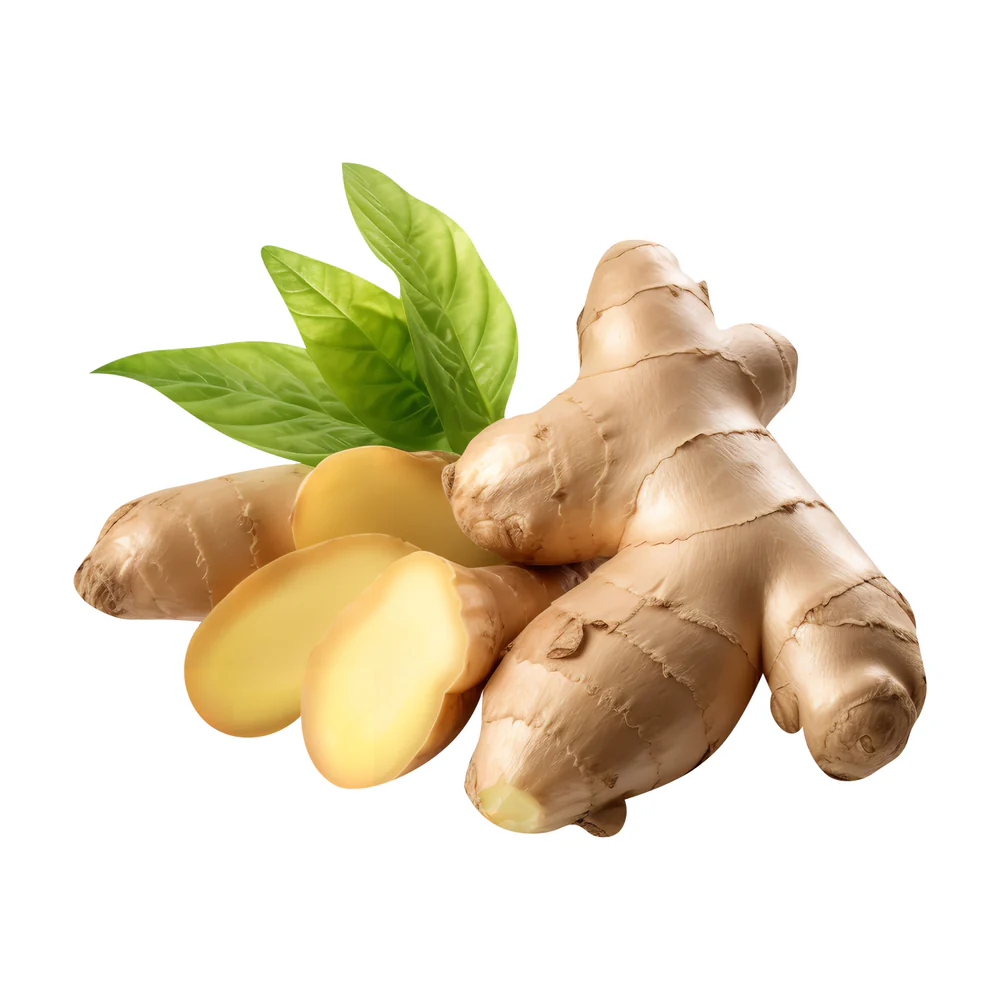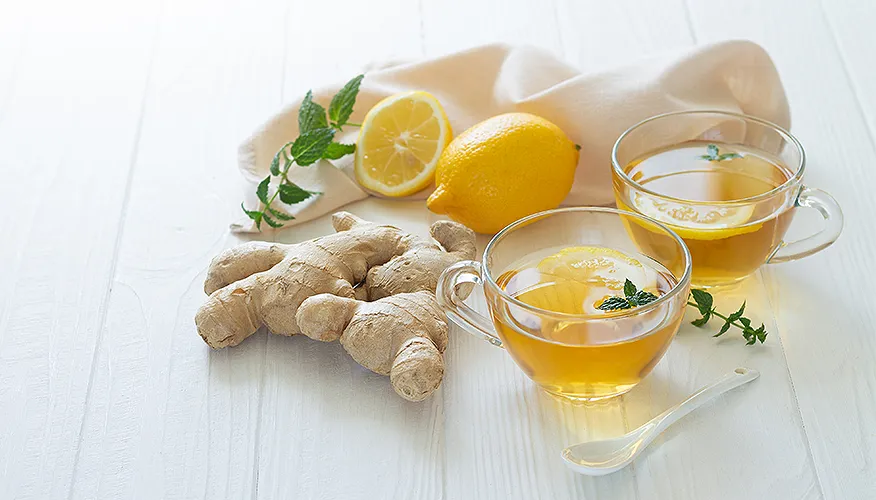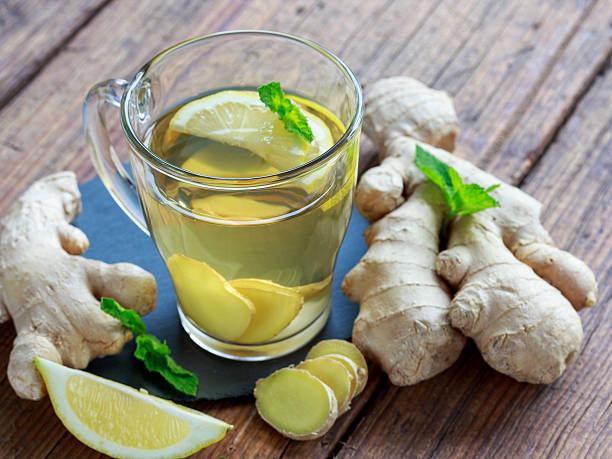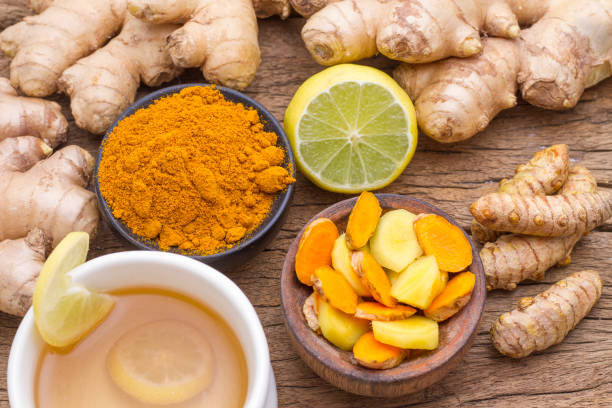Ginger is a spice and herbal remedy that comes from the rhizomes, or underground stems, of a perennial plant native to Southeast Asia. It has been used in Asian cuisine for thousands of years and is also used in medicines and cosmetics. Numerous studies have demonstrated that ginger is capable of potentially preventing cardiovascular diseases, associated pathologies.



Ginger as Treatment
Ginger root or ginger, is widely used as a spice and a folk medicine. Following are the main diseases for the treatment the ginger is used for:
1. Nausea
- These are the active ingredients in ginger that can reduce nausea by binding to the 5-HT3 receptor ion-channel complex
- Gastrointestinal motility can help digestion by encouraging food to move out of the stomach more quickly.
- Traditional remedy ginger has been used for centuries to treat nausea, vomiting, indigestion, and motion sickness.
- Pregnancy. The American Academy of Obstetrics and Gynecology says ginger is an acceptable nonpharmaceutical remedy for nausea and vomiting during pregnancy.
- ChemotherapyGinger may help with nausea after chemotherapy and may have fewer side effects than anti-nausea medications.
2. Cold
It has a long history as a herbal remedy for colds. Its medicinal properties may reduce inflammation and soothe a sore throat. Fresh ginger is also antibacterial and may help protect against cold viruses. However, researchers need to carry out studies on humans to verify ginger’s potential benefits.
3. Heart Diseases
Adding a mix of herbs and spices that included ginger to a typical American diet lowered blood pressure in adults who had a higher risk of heart disease. It can lower your total cholesterol and triglyceride levels. It can also reduce LDL cholesterol levels and boost HDL cholesterol. You can add raw ginger to food, or take it as a supplement or powder.
4. Cough
This vegetable contains bioactive compounds. These bioactive compounds are phytonutrients found in a number of foods that have beneficial effects on health.
These compounds have anti-inflammatory properties that can help control or reduce the risk of many diseases, including coughs and sore throats.
Because of its antibacterial qualities, ginger can aid in the treatment of bacterial and viral infections, including those that cause sore throats.
Some studies suggest that fresh ginger was found to have greater antioxidant benefits than dried ginger.
5. Indigestion
- Ginger may help with indigestion by speeding up the passage of food through the stomach.
- Eating ginger can help reduce fermentation, constipation, and other causes of bloating and intestinal gas.
6. Cancer
Ginger and its active constituents suppress the growth and induce apoptosis of a variety of cancer types including skin, ovarian, colon, breast, cervical, oral, renal, prostate, gastric, pancreatic, liver, and brain cancer.
7. Itching
It can help with itching due to its anti-inflammatory properties:
- Gingerols and shogaols: These bioactive compounds in ginger can help with inflammation, which can cause itchiness and pain.
- Antimicrobial properties: Ginger can help fight bacterial and viral infections that can cause sore throats.
- Antioxidant properties: Ginger can help heal conditions like sore and itchy throats.
8. Knee Pain
This vegetable can be used to treat knee pain caused by arthritis or muscle strain. Ginger has anti-inflammatory, antioxidant, and anti-ulcer properties that can help with pain relief.
9. Hair Treatment
Ginger can be used for hair in many ways, including in hair masks, shampoos, and as a spot treatment:
- Hair masks: Ginger contains fatty acids that can promote hair growth.
- Shampoos: Adding fresh ginger to your shampoo and massaging it into your scalp can help with dandruff and reduce scalp itching.
- Ginger juice, essential oil, or extract combined with equal parts of carrier oil, such as argan, coconut, or jojoba. Massage into the scalp and cover your hair evenly. Place a cap over your hair and leave it on for up to 30 minutes before rinsing out.
10. Acid Reflux
Ginger’s alkaline properties and anti-inflammatory effects can help relieve acid reflux and heartburn. You can use ginger in a variety of ways, e.g., ginger tea, ginger ale, adding ginger to food, ginger shot, ginger powder, or capsule.




Side Effects
Ginger is generally safe to consume in moderation, but it can cause side effects in some people, especially in high doses:
- Gastrointestinal issues: Ginger can cause mild heartburn, diarrhea, and stomach upset.
- Mouth and throat irritation: Ginger can cause irritation of the mouth and throat.
- Allergic reaction: Inhaling ginger dust can cause an IgE-mediated allergy.
- Bleeding risk: Ginger may increase the risk of bleeding, especially if you are taking blood thinners like warfarin, clopidogrel, or aspirin.
- Blood sugar: Ginger may lower blood sugar, so people with diabetes should talk to their doctor before taking it.
Pregnant or breastfeeding women, people with heart conditions, and people with gallstones should also talk to their doctor before taking ginger.
Experts recommend limiting ginger consumption to 3–4 grams per day, or 1 gram per day if you’re pregnant. Taking more than 6 grams of ginger per day can cause gastrointestinal issues.
FAQs
What are the Benefits of Ginger?
Ginger may have numerous health benefits due to its anti-inflammatory, anti-nausea, and other properties. It may help you lose weight, manage arthritis, reduce menstrual symptoms, and more
What Vitamins are there in Ginger?
Vitamin C, magnesium, phosphorus, zinc, folate, riboflavin, niacin, iron, potassium, B6, and B3
What are the Five Health Benefits of Ginger?
1. Calms Nausea. …
2. Soothes Sore Muscles. …
3. Eases Arthritis Symptoms. …
4. Curbs Cancer Growth. …
5. Lowers Blood Sugar. …
Is Ginger Good for the Kidneys?
It has protective effects on the kidney however the molecular mechanism of this effect has not yet been fully elucidated. Therefore, this work studied molecular mechanisms of ginger’s effects on ethanol-induced kidney injury.
Can Ginger Reduce Protein in Urine?
Treatment with ginger or garlic resulted in a significant decrease in urine protein by the 4th week of the experiment with this effect persisting to week 8. In contrast, urine protein levels in aspirin-treated diabetic rats remained elevated similar to diabetic control animals.
Summary
In short, ginger is a herb used as a medicine rather than a vegetable. It affects diseases more than any other vegetable or herb. It has been used all over the world over the years. Ginger may have anti-inflammatory, antibacterial, and antiviral properties


